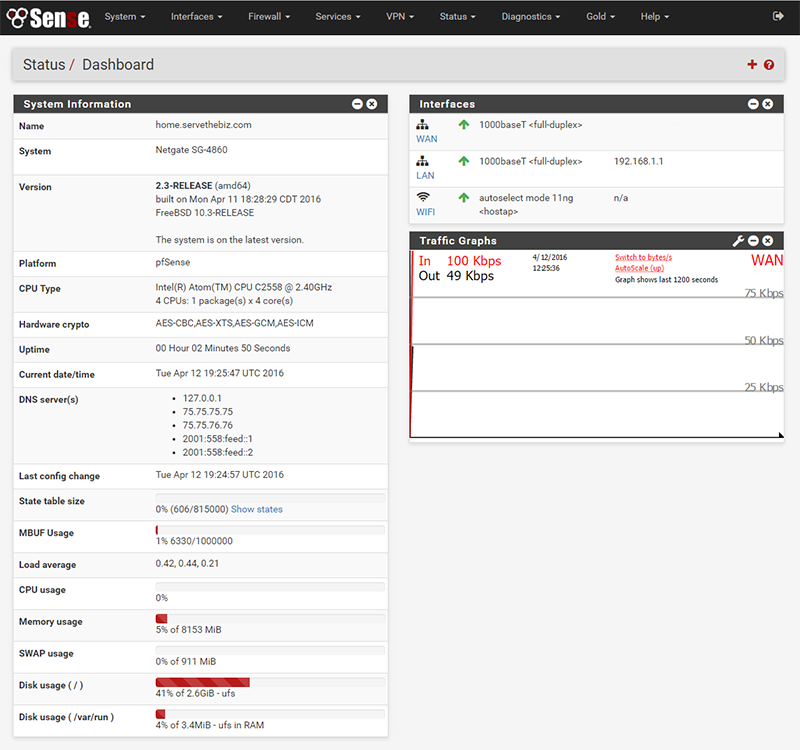
 In the folder /src/etc/, rename the files nf and nf to nf and nf. In the folder /src/usr/local/share/, rename the folder pfSense to libreSense. Edit the file /src/etc/inc/globals.inc : replace the content of product_name by libreSense, and the content of pkg_prefix by libreSense-pkg. Go to the folder /tools/templates/pkg_repos/ in the branch you would like to build ( masterfor dev version, RELENG_2_5_0 for stable version) and change pfSense to libreSense in the file names (e.g., pfSense-repo.abi => libreSense-repo.abi). (While open source, the wireguard-tools port for pfSense is currently not integrated into FreeBSD) Edit the file /security/pfSense/Makefile : remove wireguard-tools>=0:security/wireguard-tools from the RUN_DEPENDS variable. Checkout to the the branch you would like to build ( devel for dev version, RELENG_2_5_0 for stable version). Rename the file /sys/amd64/conf/pfSense to /sys/amd64/conf/libreSense. In the folder /release/conf/, rename pfSense_nf, pfSense_src.conf and pfSense_nf to libreSense_nf, libreSense_src.conf and libreSense_nf. Checkout to the the branch you would like to build ( devel-12 for dev version, RELENG_2_5_0 for stable version). You will also need to apply the follwing changes : FreeBSD Source FreeBSD Ports (Ports collection is the FreeBSD package management system, it works like apt or rpm on Linux). You will then have to fork 3 repositories: I'll use libreSense for this tutorial, but you could use whatever you want. iso file, you will have to choose a custom name for your firewall. Netgate doesn't allow you to build a product using the name "pfSense" (because of trademark).īefore building a. First things first: choose a name for your product, and update repositories accordingly Like for PiBa-NL guide, small disclaimer: Stuff might be missing, and stuff will change over time, and might not be updated.
In the folder /src/etc/, rename the files nf and nf to nf and nf. In the folder /src/usr/local/share/, rename the folder pfSense to libreSense. Edit the file /src/etc/inc/globals.inc : replace the content of product_name by libreSense, and the content of pkg_prefix by libreSense-pkg. Go to the folder /tools/templates/pkg_repos/ in the branch you would like to build ( masterfor dev version, RELENG_2_5_0 for stable version) and change pfSense to libreSense in the file names (e.g., pfSense-repo.abi => libreSense-repo.abi). (While open source, the wireguard-tools port for pfSense is currently not integrated into FreeBSD) Edit the file /security/pfSense/Makefile : remove wireguard-tools>=0:security/wireguard-tools from the RUN_DEPENDS variable. Checkout to the the branch you would like to build ( devel for dev version, RELENG_2_5_0 for stable version). Rename the file /sys/amd64/conf/pfSense to /sys/amd64/conf/libreSense. In the folder /release/conf/, rename pfSense_nf, pfSense_src.conf and pfSense_nf to libreSense_nf, libreSense_src.conf and libreSense_nf. Checkout to the the branch you would like to build ( devel-12 for dev version, RELENG_2_5_0 for stable version). You will also need to apply the follwing changes : FreeBSD Source FreeBSD Ports (Ports collection is the FreeBSD package management system, it works like apt or rpm on Linux). You will then have to fork 3 repositories: I'll use libreSense for this tutorial, but you could use whatever you want. iso file, you will have to choose a custom name for your firewall. Netgate doesn't allow you to build a product using the name "pfSense" (because of trademark).īefore building a. First things first: choose a name for your product, and update repositories accordingly Like for PiBa-NL guide, small disclaimer: Stuff might be missing, and stuff will change over time, and might not be updated. 
This guide has been written for 2.5.0, but may works for other versions I tried to follow the guide of PiBa-NL firstly, but there was missing things so I made my own guide. Here are the steps for building a pfSense ISO file.








